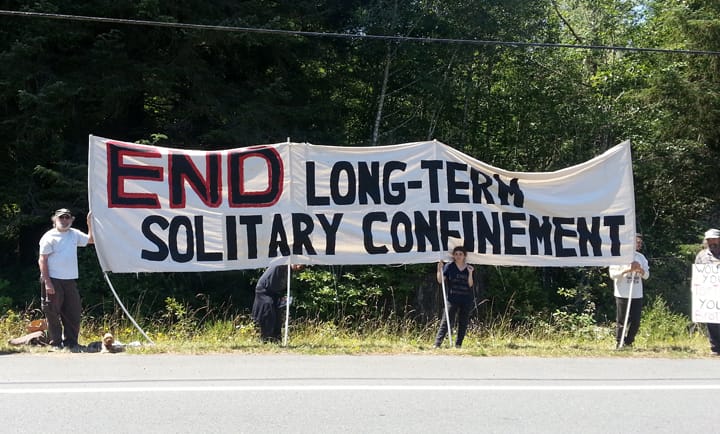by Isaac Ontiveros, Prisoner Hunger Strike Solidarity Coalition
Oakland – Protests led by prisoners in two thirds of California’s 33 prisons have gained international attention with 30,000 prisoners entering a third day of hunger strikes, along with thousands refusing work. Rallying around demands being made by Pelican Bay Security Housing Unit prisoners for an end to indefinite solitary confinement, prisoners have also called for an end to draconian policies used to classify prisoners as security threats and to compel them to inform on other prisoners. They have also called for basic access to adequate food and constructive educational programming.

“We are grateful for your support of our peaceful protest against the state-sanctioned torture that happens not only here at Pelican Bay but in prisons everywhere. We have taken up this hunger strike and work stoppage, which has included 30,000 prisoners in California so far, not only to improve our own conditions but also as an act of solidarity with all prisoners and oppressed people around the world.”
Meanwhile dozens of protests have popped up across the country, with demonstrations in Washington, in Crescent City outside of Pelican Bay Prison, and in Oakland, along with a banner unfurled during the live broadcast of the Today Show in New York City. Hundreds also turned out to a vigil in Norwalk, Calif., organized by loved ones of prisoners.
“We have suffered along with our family members and loved ones who are locked in cages across the state, particularly those thousands who have been condemned to indefinite solitary confinement. And now we are joining them in fighting back,” says Dolores Canales of California Families to Abolish Solitary Confinement. “Our strength is in our numbers, our solidarity with one another, and our absolute belief in our ability to change this inhumane system.”
Protests led by prisoners in two thirds of California’s 33 prisons have gained international attention with 30,000 prisoners entering a third day of hunger strikes, along with thousands refusing work.
Prisoners claim their strike will continue as long as necessary. “Long term isolation is out of step with international law, the U.S. Constitution and what is morally right,” said Gabriel Huerta who has been held in solitary confinement at Pelican Bay for 28 years. “We’ve tried everything at our disposal. A hunger strike is our last alternative. We can’t do this alone; we need you, the public, to support us by writing to the governor and other representatives. We need you to express to them that you do not want your tax dollars to be spent on unjust and inhumane policies, but to fund other things like your children’s education.”
Isaac Ontiveros of Critical Resistance, a national grassroots organization working to abolish the prison industrial complex, is a spokesperson for the Prisoner Hunger Strike Solidarity Coalition. He can be reached at (510) 444-0484 or isaac@criticalresistance.org.





